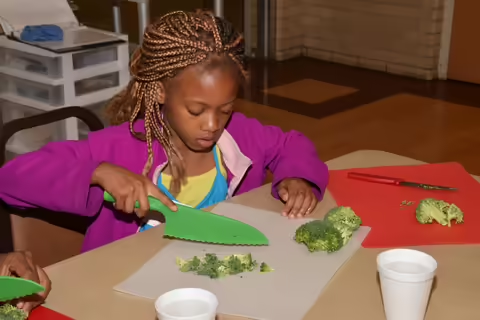PEKIN, Ill. - For many of us who are staying-at-home to continue supporting the fight again COVID-19, the pace of life has slowed to a crawl. This is especially apparent in families with children still at home. Afternoons and weekends once filled with soccer tournaments, play dates, dance practice, chess club, and marching band are now filled with solitary bike rides and screen time. Though the extra family time is certainly something to be cherished, parents may worry that kids are missing out on the life skills and development that can occur in extra-curricular activities.
The 4-H Program has been a leader in the field of Positive Youth Development (PYD) for more than 100 years. As a part of the University of Illinois Extension Fulton-Mason-Peoria-Tazewell Unit, throughout the state, or around the country, 4-H is connected to Land-Grant Universities to ensure that its programming is guided by cutting-edge research. In Illinois, 4-H adheres to a PYD framework that focuses on providing four Essential Elements: Belonging, Independence, Generosity, and Mastery. There are many simple things parents can do to provide these elements to their children, even while staying-at-home.
Belonging – Provide caring relationships and safe spaces.
- Help your child set up times to connect with friends and other trusted adults, whether by phone, video conference, or 6-feet-apart chats through the screen door.
- Accept your child’s emotions and teach them to deal with these appropriately. When feelings arise, ensure your children that what they are feeling is valid and healthy, and they can express those feelings in ways that don’t hurt others, things around them, or themselves. If an emotion is unpleasant or unproductive, you may want to help them shift their emotions by going for walks, listening to music, giving hugs, or practicing relaxation.
Independence – Help your child see themselves as being able to shape their own lives.
- Encourage your child to create a schedule for daily activities. Discuss what you will need to make time for – such as meals, chores, exercise, outside play, and bedtime – and about how long those activities can or should take. Then let them make up a timetable for how and when those things will happen.
- Allow your child to be a part of family decision-making, including the responsibilities and privileges that go along with those decisions. What will you eat for dinner, and what part of that meal can your child be responsible for planning or preparing? What will you grow in the garden, and how often will each family member be expected to weed and water?
- Work with your child to make plans for things they would like to accomplish. What is the goal? What steps will they need to take to accomplish it? What is the backup plan in case things don’t go as expected? Then, follow through!
Generosity – Give opportunities to practice serving others.
- Set up a time to make greeting cards or write notes to deployed soldiers or those in nursing homes.
- Learn sewing skills with your child by making masks to donate.
- Create videos of your older kids reading children’s books and send them to elementary school teachers or families with younger children.
- Host a distance food drive for your favorite food pantry. Invite your community to drop off shelf-stable foods and supplies at a specific location and time frame. Then, set up a table (and maybe a pop-up tent) and invite participants to unload their donations onto it. You can stand 6 feet back to wave and chat with folks you haven’t seen in a while.
Mastery – Engage your children in learning.
- Do an art project! If you’re lacking supplies, you may be able to find materials for leaf rubbings or nature collages right outside your door.
- Have your child collect 10 objects from around the house – any 10 objects. Then, tell them to create something using only those items – an amusement park, a dream house, a classroom. It could be anything. You’ll be amazed at their creativity!
- Find something new that both you and your child have an interest in doing. Then search for YouTube videos or online instructions that you can follow to learn together.
The local 4-H staff continue to offer PYD programs and support through our website and social media accounts. Everyone is invited to visit us online at extension.illinois.edu/fmpt to learn more.
About 4-H: Illinois 4-H strives to help youth learn skills for living. University of Illinois Extension provides 4-H programs in every county in Illinois. Illinois 4-H aims to impact the lives of 200,000 youth each year through sustained learning clubs and groups and short-term programming.
SOURCE and WRITER: Emily Schoenfelder, 4-H Youth Development Educator, Serving Fulton-Mason-Peoria-Tazewell Counties, eschoe@illinois.edu, 309.347.6614
